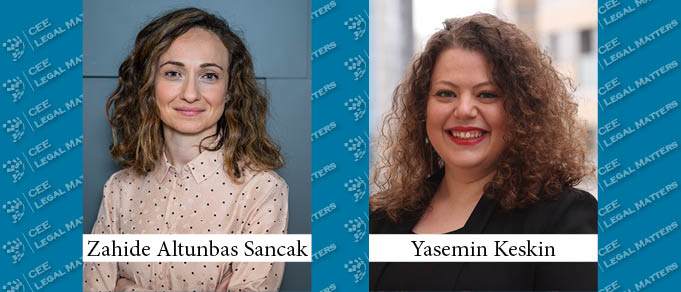For the last few years, and especially since the second half of 2021, Turkey has been struggling with an ever-growing financial and economic crisis. Dubbed as one of the “Fragile Five” economies in financial circles, the country has long been seen as a developing economy with a high degree of dependence on foreign investment and US monetary policy, limiting its power to control and contain financial emergencies.
With new global and regional risk factors affecting a big part of the world, Turkey – already a fragile economy – decided on a highly unconventional monetary policy, resulting in extremely high inflation and currency devaluation as well as falling real wages and purchasing power for wage-earners.
Turkey is now taking unprecedented legislative and executive measures in an effort to slow down the depreciation of the Turkish lira. These measures have lately included a new banking instrument protecting lira investors against foreign currency appreciation and restrictions on mortgages and, most recently, the restriction on Turkish lira borrowing for corporations holding foreign currency assets.
With the Banking Regulatory and Supervisory Authority’s (BRSA) Decision No. 10250, dated June 24, 2022 (Decision), Turkish lira borrowing by companies subject to independent audit, except for banks and financial institutions, has been restricted, depending on the amount of foreign currency assets (FX-Assets) they are holding.
Companies Subject to the Decision
Companies that fall within the scope of the decision are those holding FX-Assets worth the equivalent of TRY 15 million, which form more than 10% of total company assets or 10% of the most recent year’s sales total (whichever is higher). In this respect, companies that meet the two foregoing conditions will no longer be able to borrow Turkish lira commercial cash loans from Turkish banks. Companies’ assets will be reviewed via the consolidated balance sheets or the most recent annual financial audit report.
Moreover, gold deposits, foreign currency denominated securities and stocks, and other monetary assets such as reverse repo with non-residents are also regarded as foreign deposits, while other financial assets such as Eurobonds, non-resident securities, and debt instruments denominated in foreign currencies are not considered so.
Companies Not Subject to the Decision
Companies with a foreign currency net position deficit will still be able to use commercial cash loans in Turkish lira limited to the amount of such position deficit. However, it is required that these companies: (1) have their position deficit determined, and (2) apply to the lending bank with their most recent financial statements prepared by authorized independent audit firms.
In addition, companies holding FX-Assets below TRY 15 million as of the loan application date, need to determine the company’s total assets and net sales revenue for the last year, along with their FX-Assets portfolio and the most up-to-date financial statements prepared by an independent audit firm. Additionally, these companies are to declare and undertake to the bank that the TRY equivalent of their FX-Assets will not exceed TRY 15 million until the term of the loan and, even if it exceeds such amount, they will still stay outside the scope of the restriction. Banks will be able to determine whether the threshold has been exceeded during the loan period through statements that must be submitted within the first 10 business days of each month, based on the companies’ prior month-end balance sheets.
Banks may also require the companies to disclose all information and documents regarding the loan and will be responsible for updating the agreement within this scope and adapting business transactions accordingly. However, no standard form will be issued regarding the information and documents customers must provide.
Structural Changes Needed
Foreign currency speculation has no doubt been an aggravating factor for the ongoing financial and economic crisis in Turkey, and the BRSA’s decision supposedly aims to prevent speculation, in order to strengthen the lira.
However, with the underlying structural reasons for the speculation still present, the restriction, which is arguably a form of capital control, may act more as a red flag for potential new investors. In any way, it is clear that such measures can only act as a lifeboat in the short term, and deep structural changes are needed for the Turkish economy to thrive.
By Zahide Altunbas Sancak, Partner, and Yasemin Keskin, Senior Associate, Guleryuz Partners
This Article was originally published in Issue 9.8 of the CEE Legal Matters Magazine. If you would like to receive a hard copy of the magazine, you can subscribe here.















